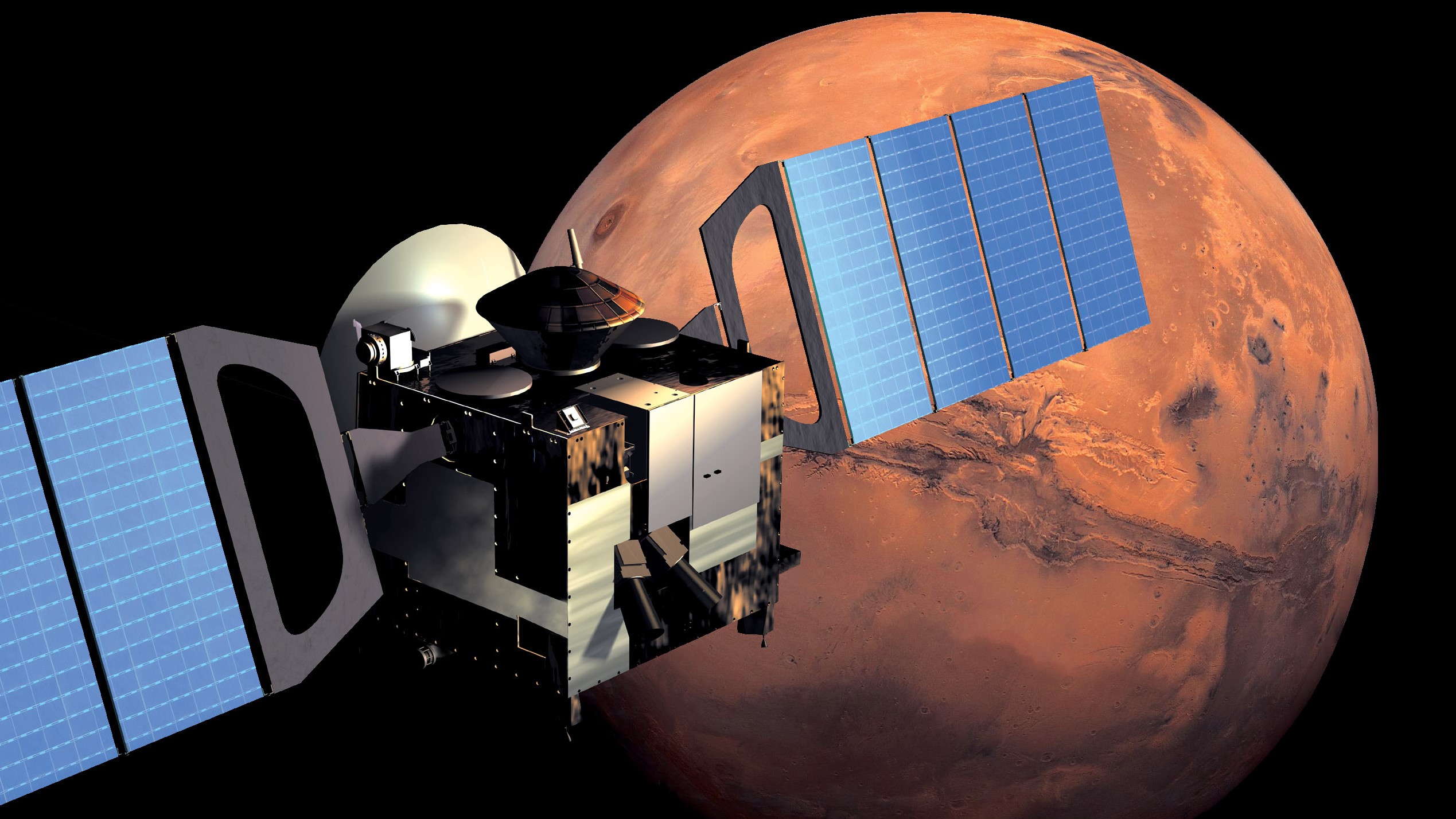European Space Agency to upgrade Mars Express spacecraft from software made with Windows 98
The Mars Express spacecraft has run on an OS built with development tools based on Windows 98 for 19 years.

All the latest news, reviews, and guides for Windows and Xbox diehards.
You are now subscribed
Your newsletter sign-up was successful
Update (12:22 PM, June 27, 2022): This post has been updated to reflect that the MARSIS instrument was designed with a development environment that was based on Windows 98.
What you need to know:
- The Mars Express spacecraft, which launched in 2003, will receive a software update to improve the data it sends back to Earth.
- Currently, the craft runs on an operating system built with Windows 98.
- The Mars Express houses the MARSIS instrument, which helped discover signs of liquid water on Mars.
Windows 8.1 may be on its way out the door, but the European Space Agency (ESA) has an older operating system to deal with. The Mars Express spacecraft needs to be updated from its OS that was built with tools based on Windows 98. The MARSIS instrument, which was used to discover signs of liquid water on Mars, is housed on the spacecraft. A software update will allow the device to see what's below the surface of the red planet in more detail, according to the ESA.
“After decades of fruitful science and having gained a good understanding of Mars, we wanted to push the instrument’s performance beyond some of the limitations required back when the mission began,” said MARSIS Deputy PI and Operation Manager at INAF Andrea Cicchetti.
“We faced a number of challenges to improve the performance of MARSIS,” said Carlo Nenna. “Not least because the MARSIS software was originally designed over 20 years ago, using a development environment based on Microsoft Windows 98!”
The software update for the Mars Express will improve signal reception and on-board data processing. This will increase how much data can be sent back to Earth and improve the quality of that data.
Previously received signals indicated that liquid water may be present in several regions near the south pole of Mars. The software update should provide more in-depth information for these areas.
"The new software will help us more quickly and extensively study these regions in high resolution and confirm whether they are home to new sources of water on Mars. It really is like having a brand new instrument on board Mars Express almost 20 years after launch," said ESA Mars Express scientist Colin Wilson.
All the latest news, reviews, and guides for Windows and Xbox diehards.

Sean Endicott is a news writer and apps editor for Windows Central with 11+ years of experience. A Nottingham Trent journalism graduate, Sean has covered the industry’s arc from the Lumia era to the launch of Windows 11 and generative AI. Having started at Thrifter, he uses his expertise in price tracking to help readers find genuine hardware value.
Beyond tech news, Sean is a UK sports media pioneer. In 2017, he became one of the first to stream via smartphone and is an expert in AP Capture systems. A tech-forward coach, he was named 2024 BAFA Youth Coach of the Year. He is focused on using technology—from AI to Clipchamp—to gain a practical edge.
